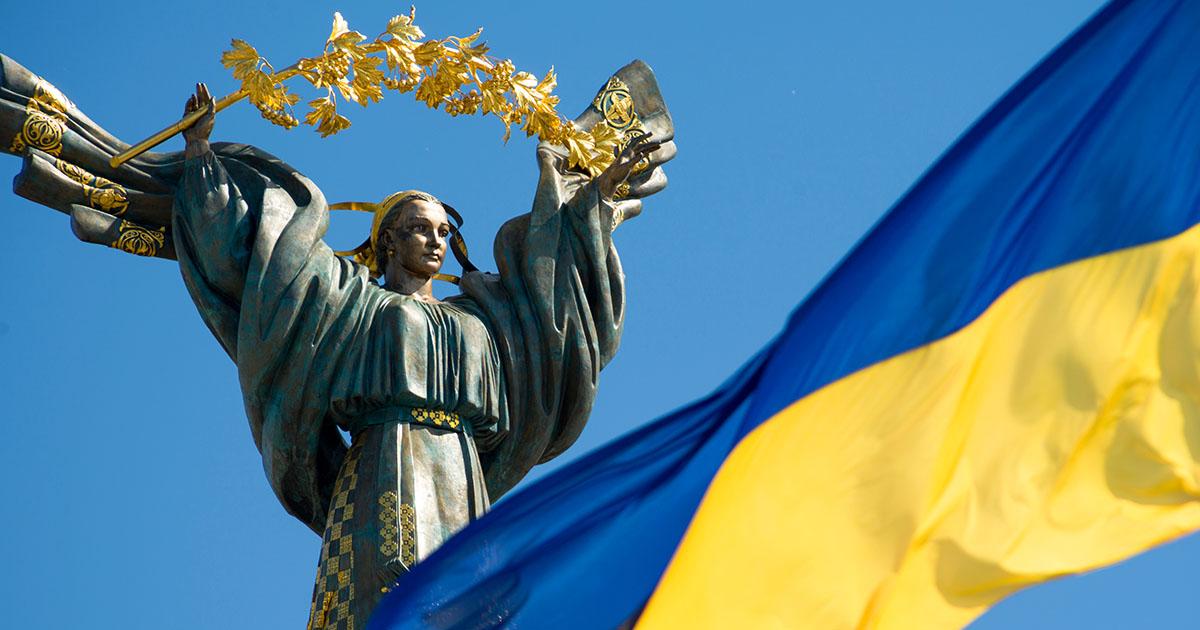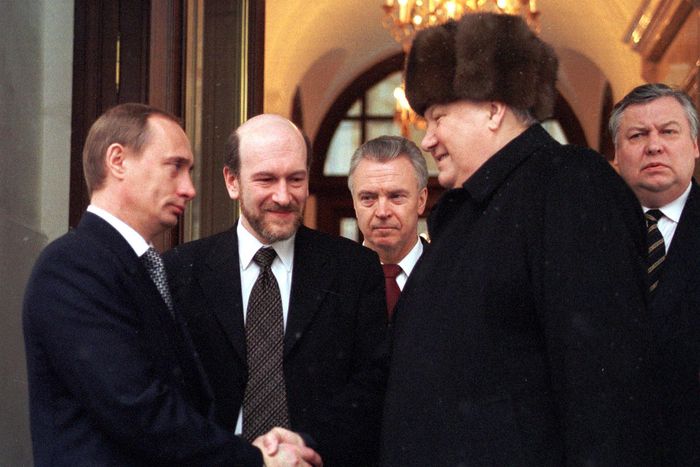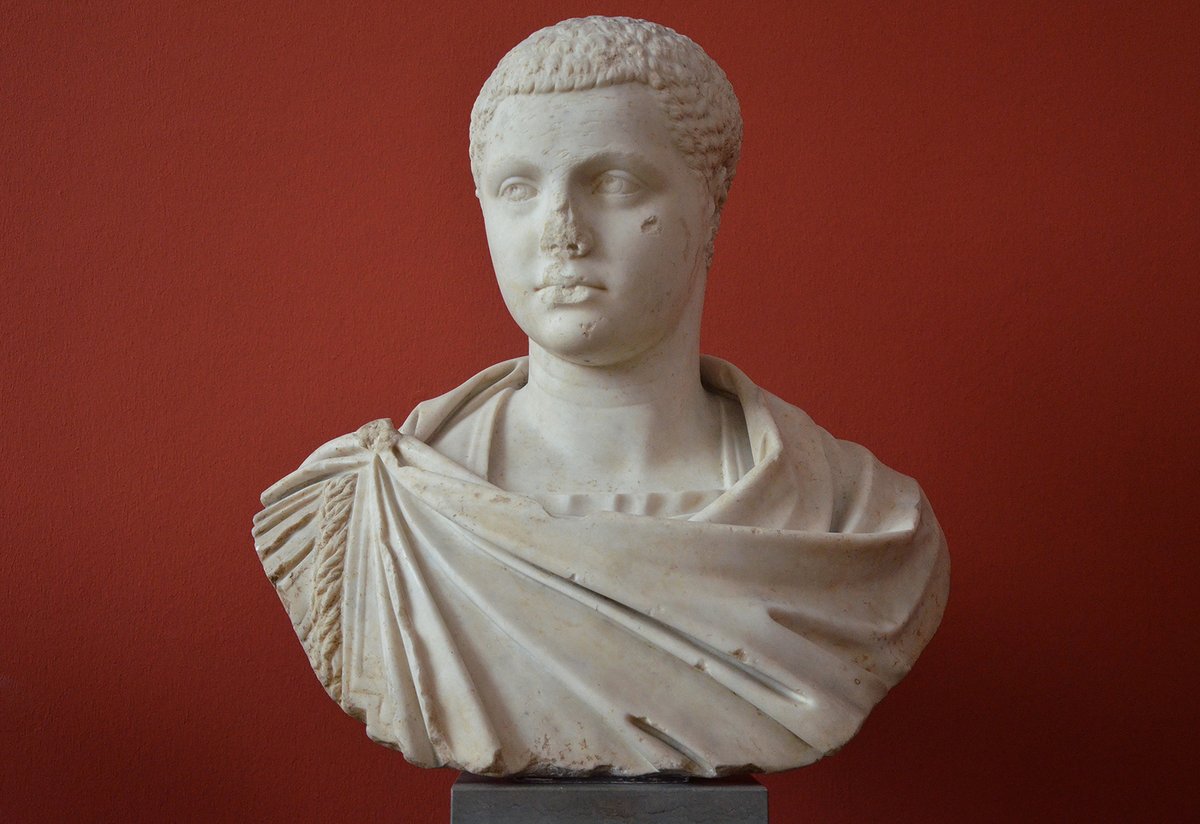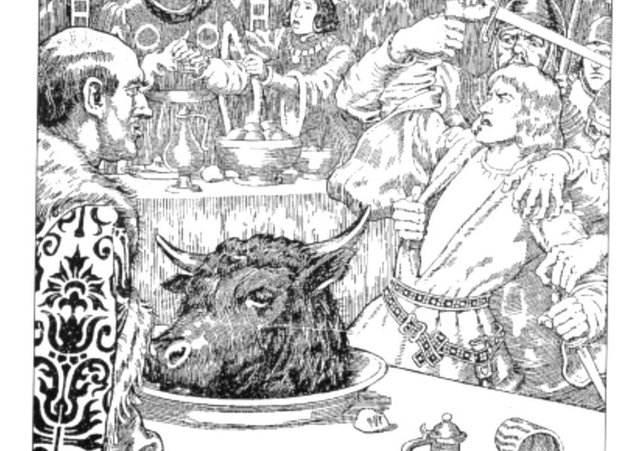On 21st February, Vladimir Putin declared that Ukraine was entirely created by Russia.
The truth is, of course, rather different.
Although Russia and Ukraine have an interlinked history, a distinct Ukrainian national sensibility is centuries-old.
Here’s the history:
🇺🇦 🧵 ⬇️
The truth is, of course, rather different.
Although Russia and Ukraine have an interlinked history, a distinct Ukrainian national sensibility is centuries-old.
Here’s the history:
🇺🇦 🧵 ⬇️
1/ The land on which Ukraine is now situated is cited as far back as Herodotus, but the foundations of the modern state lie with the Vikings.
Viking expansion and dynastic conflict led to the formation of Kyivan Rus’ around the 9th century.
Viking expansion and dynastic conflict led to the formation of Kyivan Rus’ around the 9th century.
2/ Kyivan Rus’ was massive, extending north to modern day Novgorod. It was an empire based on trade, but ruled from Kyiv.
3/ Although it was huge and disconnected, by the 11th century, under Yaroslav the Wise, a centralised state was emerging, based on Orthodox and Slavic culture.
4/ After a period of decline, however, the city was sacked in 1240 by the Mongols, with the neighbouring but separate state of Muscovy beginning to rise as a Mongol vassal.
With the sacking of the capital, Kyivan Rus’ was no more.
With the sacking of the capital, Kyivan Rus’ was no more.
5/After the dissolution of the Mongol’s Golden Horde, by 1569 the majority of today’s Ukraine was subsumed into the Polish Lithuanian Commonwealth.
Culturally it had more in common with the similarly Slavic, Orthodox Muscovy than the Commonwealth, but it was still very separate.
Culturally it had more in common with the similarly Slavic, Orthodox Muscovy than the Commonwealth, but it was still very separate.
6/ The Catholic Poles dominated the Orthodox Ukrainians, although in 1596 Ukrainian elites did a deal with the Vatican, bringing their Orthodox Church under Catholicism.
This new Uniate church was unique to Ukraine. It was not orthodox, and has always earned Russian distrust.
This new Uniate church was unique to Ukraine. It was not orthodox, and has always earned Russian distrust.
7/ A distinct, national, Ukrainian religious and intellectual culture was beginning to emerge.
But in 1654 the Cossack freebooters, who had moved into South Eastern Ukraine, rebelled against the Polish landowners.
But in 1654 the Cossack freebooters, who had moved into South Eastern Ukraine, rebelled against the Polish landowners.
8/ This was a controversial point in Ukrainian history, as the Cossack leader, Bohdan Khmelnytsky, did a deal with the Russian Tsar to facilitate the success of the rebellion.
Whether this was an agreement of subjugation, or one where Ukraine retained its autonomy, is debated.
Whether this was an agreement of subjugation, or one where Ukraine retained its autonomy, is debated.
9/ The 17th century saw Ukraine’s ‘Ruin', as Polish, Russian and Swedish armies roamed across Ukrainian lands.
But in 1709 Hetman Ivan Mazepa, perhaps the first Ukrainian nationalist, came along, taking on the Russians at the Battle of Poltava.
But in 1709 Hetman Ivan Mazepa, perhaps the first Ukrainian nationalist, came along, taking on the Russians at the Battle of Poltava.
10/ Mazepa’s forces, alongside the Swedish, were defeated. Now much of Ukraine became part of the Russian Empire.
Ruthenian (Ukrainian) identity was whittled away by Catherine the Great, and the Crimea was annexed in 1783.
Ruthenian (Ukrainian) identity was whittled away by Catherine the Great, and the Crimea was annexed in 1783.
11/ In the 19th century, Russification attempts continued, with the Ukrainian language suppressed in 1876. But this did not destroy Ukrainian nationalism in rural areas and universities.
It was at this time that nationalist intellectuals like Taras Shevchenko emerged.
It was at this time that nationalist intellectuals like Taras Shevchenko emerged.
12/ By 1914, Ukrainian nationalist feeling had gathered momentum.
With the First World War and Russian Civil War Ukrainian national republics and armies began to spring up, and Ukraine entered the USSR as a distinct Soviet republic.
With the First World War and Russian Civil War Ukrainian national republics and armies began to spring up, and Ukraine entered the USSR as a distinct Soviet republic.
13/ Stalin tried to crush Ukrainian nationalism, and intensified attempts at Russification.
Stalin's collectivisation also led to the Holodomor, a terrible famine that killed 4 million - labelled a 'genocide' by some historians.
Stalin's collectivisation also led to the Holodomor, a terrible famine that killed 4 million - labelled a 'genocide' by some historians.
14/ World War II was also particularly disastrous for the Ukrainians, with Nazi occupation and the country’s recapture by the Red Army.
7 million Ukrainians were killed, while half of the national wealth was lost.
7 million Ukrainians were killed, while half of the national wealth was lost.
15/ At the end of the war Ukraine remained in the USSR. But the 1960s saw renewed nationalist energy.
1986 brought the disaster on Ukrainian soil at Chernobyl, which fuelled more anti-Soviet feeling, and in 1991 an independence referendum was called.
1986 brought the disaster on Ukrainian soil at Chernobyl, which fuelled more anti-Soviet feeling, and in 1991 an independence referendum was called.
16/ The referendum was a landslide.
90% of the country voted for independence. This was certainly not, as Putin claimed, merely a 'gift' of the Russians.
90% of the country voted for independence. This was certainly not, as Putin claimed, merely a 'gift' of the Russians.
17/ The newly independent country of Ukraine was briefly the third-largest nuclear power in the world.
Nuclear arms had been left on Ukrainian soil by Moscow after the collapse of the Soviet Union in 1991.
Nuclear arms had been left on Ukrainian soil by Moscow after the collapse of the Soviet Union in 1991.
18/ In the years that followed, Kyiv made the decision to completely denuclearise.
In exchange, the US, the UK and Russia would guarantee Ukraine's security.
In exchange, the US, the UK and Russia would guarantee Ukraine's security.
19/ In 1996 Ukraine handed over its nuclear weapons to the Russians, in exchange for a guarantee of the integrity of its borders...
20/ It is clear, therefore, that Ukraine has a long, proud and distinctive history, and its existence, achieved after centuries of warfare, is neither a Russian gift nor a Russian creation.
There are few other places in the world that deserve peace more than Ukraine.
🇺🇦
There are few other places in the world that deserve peace more than Ukraine.
🇺🇦
To hear more about the complex history of Ukraine, tune in to our podcast, where @dcsandbrook and @holland_tom go into more detail on all of the above.
Apple apple.co/3BIWMII
Spotify spoti.fi/3JRm4Y7
Others bit.ly/3sXVCoU
Apple apple.co/3BIWMII
Spotify spoti.fi/3JRm4Y7
Others bit.ly/3sXVCoU

• • •
Missing some Tweet in this thread? You can try to
force a refresh







